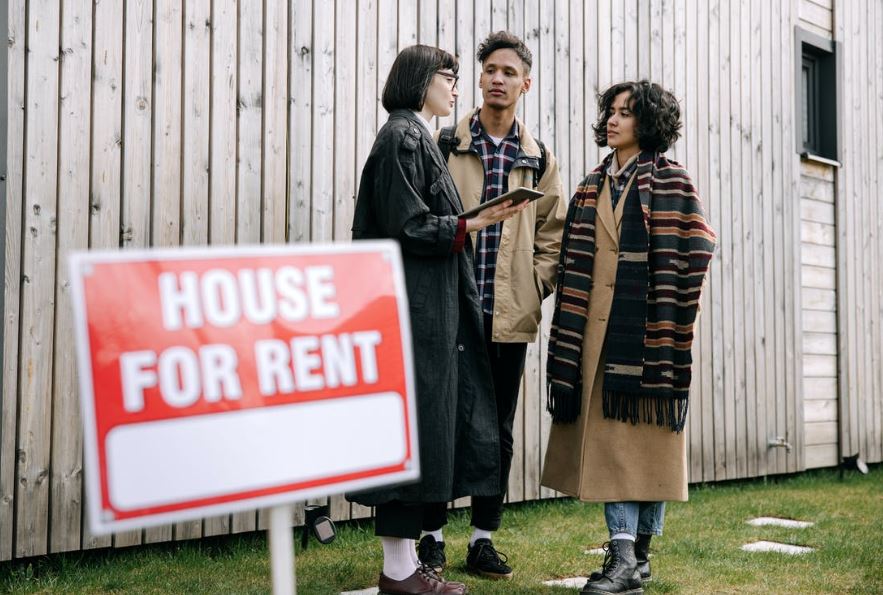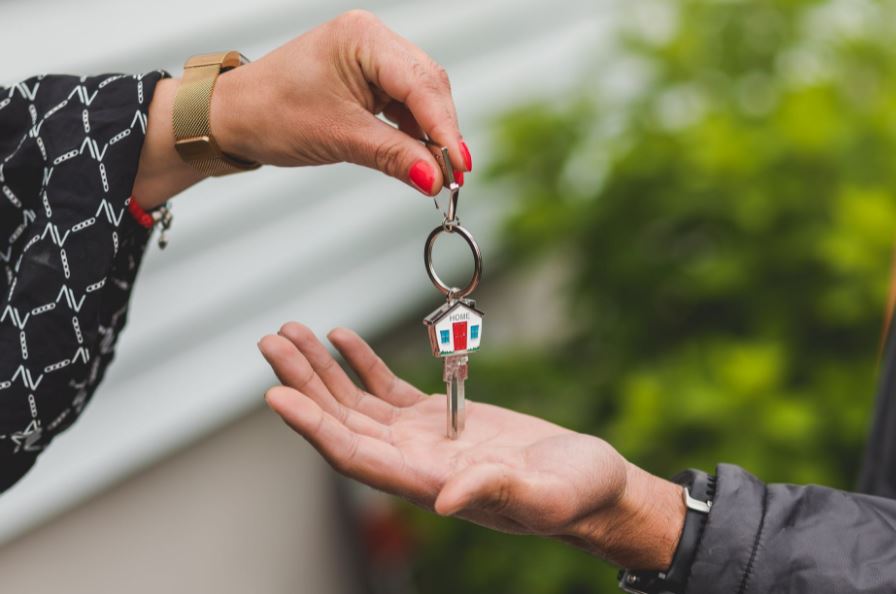Moving into a new place and home involves lots of work, which makes it a stressful experience at times. After you find a new home to move into, you still need to think about what you will do with your previous home, if ever you also own it. There are usually two options for this. It is either you will sell your old home or rent it out. The latter is a good option, especially if you are unsure yet of what decision to make or if you are thinking of coming back. Renting out your home is also a good idea if you want to have an extra income after you move to a new home.
Keyrenter Management in Richmond advises that when you decide to rent out your home, there are still more things you need to consider. If you are looking for more ideas on how it should be done, we’re here to help you. Read on as we’re giving you some of the best tips on how to rent out your home.
What are the Advantages of Renting Out Your Home?
While renting out your home has a lot of challenges, the investment and effort that you put into it might be worth it for many reasons.
- By historical standards, the homeownership percentage in the United States is relatively low.
- There are more renters in the market that drive higher demand for rental units.
- When there is a higher demand for rental housing, landlords are given the ability to set higher rents.
Many people are renting. Did you know that in 2020, the percentage of homeownership has become much lower compared to 2005? In 2005, 69% of people in the United States owned their homes, while in 2020, it went down to 65%.
In addition to that, another trend that is attractive to landlords is higher rents being charged. Based on research, rent prices in the United States are always increasing. In 2011, aggregate rents were at around $1,300. In 2020, it jumped to $1,500.
Here are some of the other benefits that you can get from renting out your home:
- Additional Monthly Income
When you find high-quality renters who can pay their rents on time, then it means that you can secure consistent rental income that can actually supplement your monthly income or savings.
- Long-Term Financial Security
Renting out your home allows you to invest in real estate and use your earnings to pay off the mortgage, which provides long-term wealth outside of rent cash flow.
- Tax Deductions
While all rental income is taxable, you can take advantage of some tax deductions when tax season comes.
Best Steps on How to Rent Out Your Home
There are many different reasons behind people deciding to rent out their homes. It can be because they are moving to a new place, need some help with the mortgage, or maybe they inherited their parents’ house but have no plans of moving into it. But no matter what reason you have, if you are wondering how to rent out your home, we’ve got you covered. Below are some of the best steps that you can take on how to rent out your home.
1. Decide whether renting out your home will make sense.
Before you choose to become a landlord, you first need to ensure that it will work best for you. Try to take a look at your situation first and make sure that it is a smart move.
For example, if you needed to move for a job, family, or other reasons beyond your control and your house has been on the market for so long, and you’re wondering if renting it out is better than selling it, it might be a good idea for some reasons. First, if the house is already paid for, then renting it out means having more money in the bank. It can also be less stressful as you no longer need to wait for the right offer or settle down for less. It will also give you a chance to build more equity as home values increase.
However, renting out your home also have some drawbacks. Keep in mind that the minute you rent out your house, it will become an investment property, which has state-specific rules on the kind of insurance that you need to have. There is also the risk of tenants that might wreck the place. If the house is old, you also need to spend some money improving and decorating it. You can check out our shotgun house interior design and ideas.
2. Set a budget.
After you weigh all the advantages and disadvantages of renting out your home and you still decide to push through, then making a financial plan is your next step. Renting out your home is not done just for fun. Being a landlord means hard work, and it involves expenses that you need to plan for before you earn. Here are some of the things that you need to include in your budget:
- Mortgage: Even if you plan to have tenants cover the monthly mortgage payments with their rents, it is important that you still include it in your property budget. It’s because there can be months in between tenants when you have to shoulder the bill. You should not forget about the interest, too.
- Property Taxes: There are some mortgage companies that include the property tax in the monthly payment. However, not all of them do. Therefore, it is always better to check first.
- Insurance: It is important to have insurance. There are many types, and your location will determine whether you will need different kinds, such as flood or earthquake insurance.
- Maintenance and Repairs: You also need to have an emergency find that you can use when your tenants call you to fix something, like water pipes and dishwashers.
- Cleaning and Upgrades: These things will enter the picture in between tenants. You need to have a budget for home upgrades and deep cleaning, both indoors and outdoors.
3. Research about rentals around your area.
Before you list your space online, you need to learn about landlord-tenant laws first. This is because each state has a different set of rules for what is needed to be included in a listing, how to collect a security deposit, the terms that are required in the rental agreement, and more. In addition to that, there are also federal laws about housing safety and anti-discrimination that are needed to be followed.
Do not ignore the laws, as that can lead to lawsuits. Therefore, before you rent out your house, be smart and make lots of research and inquiries about it.
4. Make sure to have a property management plan.
Managing a property can be pretty stressful. You may encounter situations such as tenants losing their keys, leaking pipes, pests around the house, and more. It can be more challenging if you are managing the house from out of town. If this is the case, then having someone else to be the first line of defense. Hiring a property manager can also be a good idea. However, remember that it can also be pricey and may minimize your profits. Therefore, weigh the benefits first and see if they will work best for you.
5. Write up a rental lease.
It is very important to write up a rental lease. There are thousands of templates that you can find online for this. A rental lease includes all of the rules that you want the tenants to follow. It can include rules about having pets, having guests, adding furniture, drilling holes on the walls, and more. It should also include the address of the property, a list of all the people who will be living in the house, when the agreement starts and ends, the cost of rent, and how much the security deposit is. It is better to have a lawyer involved in this part, as a lease is considered to be a legal contract that can have legal consequences.
6. Choose the right tenants.
When you search tenants for your rental home, you need to screen them thoroughly. The application should include their personal information, such as name, date of birth, social security numbers, references, proof of income, and emergency contact information. After that, try to talk to their last landlord, their employer, and run a background and see if there is no warrant out for their arrest. This way, you will be able to avoid tenants that will only wreck and trash your space.
During the decision-making process, it is also a good idea to check back in with your lawyer or real estate agent, especially if you have several qualified applicants to choose from.
7. Document the house that is being rented.
Before your chosen tenants move into your home, it is very important to document the space first. Take photos of everything in your home. Take note of any cracks in the walls or scratches in the wood. Also, before your tenants move in, walk them through the house and let them document the space for themselves. Both of you should agree on the current condition of the space and write down anything that might be tagged as damaged, even if it is only minor.
Based on the law, as the landlord, you owe the renter their full security deposit back. The only reason you should not refund it is if you can prove that the tenant caused damage to your home. Therefore, taking photos and notes will be very helpful in case the tenants try to argue that they did not cause the damages.
8. Prepare for evictions properly.
If you need to evict a tenant, you will need an attorney. If the tenant is not willing to leave your home, you can’t just go move their things and kick them out. Situations like this will require you to go to court. If they don’t move out willingly, the sheriff will come out and remove the person physically. Also, keep in mind that eviction can be costly too.
Conclusion
Renting out your home is indeed a good idea, especially if you are looking for extra income after you move into a new house. However, you have to remember that it also comes with many challenges. Being a landlord requires hard work and lots of patience and planning. But when the steps in renting out a house are followed well, it is one of the best investments out there. We hope this article helped you learn more about how to rent out your home.


